Stay in the know
All our latest podcasts delivered right to your inbox.
Many schools across the country are lifting their mask mandates. Whether families are excited or uncertain about the new rules, change is hard for everyone –– not just for kids who learn differently.
In this episode, hosts Amanda Morin and Gretchen Vierstra talk candidly about masks, kids, and schools. Hear how they’re talking with their families about the new mask rules, and get tips on how to help kids manage the changes. Plus, get a dad’s perspective from Dr. Andy Kahn, Understood’s newest in-house expert.
Related resources
Trouble with flexible thinking: Why some kids only see things one way
Want to know how your child is feeling about masks? This feelings wheel can help.
Episode transcript
Amanda: Hi, I'm Amanda Morin. I'm the director of thought leadership for Understood.org and a parent to kids who learn differently.
Gretchen: I'm Gretchen Vierstra, a former classroom teacher and an editor here at Understood. And this is "In It."
Amanda: "In It" is a podcast from the Understood Podcast Network. On the show, we talk to parents, caregivers, teachers, experts, and sometimes even each other. We offer perspective, stories, and advice for and from people who have challenges with reading, math, focus, and other learning differences.
Gretchen: Today we are breaking form, as we sometimes do, to talk about something on our minds, and from what we can tell, on the minds of lots and lots of kids and parents in the "In It" family.
Amanda: And it has to do with this sudden lifting of mask mandates in many, many school districts across the country.
Gretchen: For some kids, this is great news. For others, not so much. And we want to get into all of that, and perhaps come up with some ideas for helping with this latest version of the new normal. And just a heads-up. You might hear some other voices besides ours, because we've got our colleague Andy Kahn listening in today. No pressure, Andy.
Amanda: But first, a little context as to why we're having this conversation. As you listeners probably know, the CDC mask guidelines have changed pretty recently, which has led to some big changes in schools. We know that in New York City Public Schools, the mask mandate was lifted for students 5 and older. And here for me and the majority of New England, that's what we're seeing, too, is all of a sudden kids don't have to wear masks in schools.
Gretchen: So Amanda, here in California, we are getting ready to lift our indoor mask mandates in schools later on this month. And so that means that some schools are starting to prepare kids in different ways. And for my kids, you know, our kids have been masking not only indoors, but outdoors. And in California schools, you do a lot outdoors, and they're still wearing masks outdoors. And so the school district said, you know, starting this week, kids wouldn't have to wear them outside anymore.
Amanda: As we were having this conversation, Gretchen, into my inbox rolled the email from our school district saying, as of tomorrow, it's up to your kids as to whether or not they want to put a mask on or not.
Gretchen: Wow. So late-breaking news.
Amanda: Yeah, we thought it was going to happen. And here it is. It's happening.
Gretchen: It's happening. And I'll tell you, it's happening and it's, for us at our house it's causing a little anxiety. I was really excited because for me, I want my kids to see each other's faces at school and see their teachers' faces. But we had a little bit of the Sunday night worries knowing that Monday was going to be a day without masks outside. There was some worry about just showing your face for a longer period of time for the first time. And you know, I have a middle-schooler and a high-schooler. And as a former middle-school teacher, I know there's probably a lot of anxiety for lots of students around masks, because masks have been able to perhaps cover some things that teenagers are worried about. You know, teenagers might worry about things like having braces or having a pimple. Some kids might be wearing makeup and others aren't in the mask. Well, you can't tell. And so, you know, that's kind of like an added worry for some older students that taking off the mask is going to be a big reveal.
Amanda: A big reveal. I like the way you say that.
Gretchen: A big reveal. So what about you, Amanda?
Amanda: Well, it's so funny because we both have middle-schoolers and you have a high-schooler, and there's that component of it too. It's like, who's going to be the first one to take their mask off? Who's going to be the, you know, right? That kind of thing. We had a similar conversation in our house. We were preparing for it, right? And you know, I talk a lot on the podcast about the fact that my Mr. 12, who's now Mr. 12, not Mr. 11 anymore, has ADHD and is autistic, and it was hard to get the mask routine down. And now he's got it down really well. And I thought, OK, we're going to have a conversation about like, how do you undo that routine? And we had quite a conversation at the dinner table about, you know, do you want to wear a mask? Is it because you feel safer? Is it because you feel calmer? Is it because it's a routine for you? Like, we went through this checklist of things and then talked about like risk assessment. I mean, it went this whole like total direction. We ended up like, you know, the CDC's map of like transmission rates and things like that.
And at home right now, we have Mr. 12 and my husband and myself. The others are off in their own world. And it was really interesting to me because I kind of thought we were going to be on the same page and we're not necessarily.
And so we talked a lot about the — what are the circumstances under which you'd feel comfortable taking off that mask? And where would you still wear one? And we came to the conclusion that anytime we go to an airport or a mall, because we don't know the circumstances of the people around us, that masks or something we want to continue wearing? And I think he's going to be a lot like your kids and sort of see what the other kids do come the day, right? And I will tell you, too, that the funny thing was all of a sudden he looked up and he said, "But we have all these masks, and they were really expensive. What are we going to do with those?"
Gretchen: We keep them, right? That's the thing. So we were talking about how, well, you know, eventually this no masking outdoors is going to go to indoors. And then eventually, you know, probably we'll all get used to going to school without masks on. But then my daughter asked, "But really? Because what about COVID?" Like, I wish she wasn't sure of the future. And I think that's tough for a lot of kids, right? Especially kids who may have trouble with like flexible thinking, right? Thinking, like, "OK, now I'm done with masks. I take it off. I'm done. Oop, wait, it might come again, right? The fall is going to come and we could be masking all over again." And so I'm sort of wondering, like, how do we help kids take them off? But then how do we help kids know that you might have to put them back on again?
Amanda: I think it's around that helping them hold two ideas at the same time, which is hard for anybody, let alone kids who learn and think differently, right? You have to be able to hold in your head to ideas that, OK, this could be safer for me, and I'm OK. And also, there may come a time when that's not the case, you know? And I want to be really clear in saying that there are, you know, it's not all a bad thing to take off masks, right? Like, there are definitely things that can be helpful. Like, we were talking with our producer earlier, Julie, and she was saying that like me, she's the person who like, relies on seeing people's lips. You know, like a lot of people rely on seeing the shapes of the words, even when they don't know that they're doing it. I do that. You know, I keep thinking, I'm not hearing people, but it's not that I'm not hearing them. It's that I'm not seeing them when they have their masks on.
Gretchen: And, you know, we're both former educators. I know that when I taught in the classroom, I relied a lot on my facial expressions. You know, whether that's smiling and being excited about something, or maybe giving a subtle hint to someone like, "Hmm, let's reconsider what we're doing right now" without having to say any words. And that's probably been so hard for teachers wearing masks. And so taking those masks off is maybe helping with communication for lots of kids.
Amanda: Yeah. And you know, I think about it from the eye contact perspective too, right? We've been put in a place where eyes are pretty much all we're seeing of people's faces for a really long time. And for some kids, it's super hard to do that. Making eye contact is super hard. So they rely on like, I'm going to look at your nose, I'm going to look at your lips, I'm going to look at someplace on your face, and it looks like I'm looking at your eyes. I look like I have that social convention down, but I'm doing it in a way that's more comfortable. And I think for kids and adults, I may be speaking a little bit about myself here. You know, to have another place to look other than straight in people's eyes may be really helpful, too, as those masks start coming off. You know, like we're talking really literally. But I also wonder figuratively what it means when those masks come off. Does it mean kids take other masks and themselves off too. Do they become more comfortable with each other because they see each other, right?
Gretchen: Yeah, I wonder that too. You know, so we're saying obviously there's a lot of benefit to taking off the masks. But then for some families, they're not going to be so comfortable, right? And some kids may not be comfortable for a while, and there may be kids who are worried about their health still and, you know, worried about bringing home COVID to maybe Grandma who's living with them. So, you know, there's two things, right? I wonder about coaching our kids to have empathy, right? Have understanding about why some kids may choose to have masks for quite a long time. And then for the mask wearers, giving them some words to say when people ask, like, "Huh, why are you — why do you still have your mask on?"
Amanda: We did that at that whole dinner table conversation which ended up being like, then a couch conversation and then a car conversation. And then it like, you know, they all become like, it's a conversation after conversation. And one of the things we talked about is like, "What do you say?" And it was really interesting because we kind of boiled down to the "less is more" in some of these cases. The ability to say this is "because I choose to" or "I feel safer," or even like the fallback, "my parents say I have to wear a mask." Because I think sometimes having that backup is super helpful for kids to be able to totally blame it on us, right?
Gretchen: Yeah. I suggest that a lot.
Amanda: Yeah, that's a go-to in our in our house. And then I think the other thing is explaining exactly what you explained, right? So being able to say, "I'm protecting my sibling who hasn't been able to be vaccinated yet," right? Or "I haven't had all of my vaccinations and I'm not going to be vaccinated because that's the choice our family made. So I'm protecting myself for the rest of my family." It's about like, how much is too much and how much is too little to say. And I think it depends on the kid and it depends on the situation. You know, Gretchen, it's so interesting that you mentioned empathy because when we were talking with our producer, Julie, earlier, she had a really good story about the empathy component of it. So I'm going to put her on the spot and ask her if she'll tell us that story.
Julie: OK. Yes, so I was talking to my daughter, who's in middle school and was getting some reports from my niece, who's in high school, and they both were ready to stop wearing a mask but were really nervous because they had teachers who they knew had some sort of health issue. Like my daughter's science teacher is getting chemotherapy. And so there's a group decision being made in that class that the kids are not going to wear their mask with some teachers, but have decided they will wear masks around her. And I just think it's an interesting opportunity to be making these choices together, to be having to think about how your choice is impacting somebody else. So there's that aspect.
Amanda: That's such an interesting like teachable moment too, that you wouldn't have thought of. Hurray for them for thinking of that.
Julie: Yeah! Go eighth graders! Anything else? Anyone's thinking, Andy, anything you wish we had talked about?
Andy: No, I mean, I think, you know, the only thing that we've experienced up here — I live just outside of Bangor, Maine, and my daughter was talking to some kids in the local high school. She goes to a private school. And she was saying that there's a real big culture split in the high school in town, and that the kids who are masking are looking at those who aren't and vice versa with some pretty strong responses. And I think that there is some stress related to that for these kids. And they've naturally separated themselves as it is. But I think it's going to be very interesting to see how families to maybe talk about how is it that you are going to react to people who don't share the same ideas as you? And how are you going to reconcile that and have a common environment when in actuality we're just doing our thing? You know, and I think that's really going to be a big part of this for a lot of families in places where people have some pretty strong opposing opinions.
Amanda: Yeah. Andy, thank you so much for your perspective, too. Super helpful.
Gretchen: Yes, thanks.
Amanda: I also just want to mention, too, that I think it's important to note that there's — the CDC guidance is one thing and whatever the department of education or your school department is saying is another. But it's also important to pay attention to like your pediatrician, right? Because pediatricians still have guidelines around when they think kids should be masked. And that's, you know, kids between 2 and 5 who aren't eligible to be vaccinated and if they're immunocompromised or not vaccinated, or whether family members are at higher risk. Those are things that the American Academy of Pediatrics is asking us to still consider, and I think it's really valuable, too.
Gretchen: Yeah, there's a lot to figure out, and it just seems like it came at us, right? We went from "Oh my goodness, so many variants, everyone's masks need to be upgraded" to "take off the masks." That's a lot for kids to handle. That's a lot for me to handle.
Amanda: But, you know, I think it's always good to know what's on our minds because our listeners have things on their minds, too. And listeners, we'd love to hear from you. Like, how are you, how are your kids doing with this latest shift? Because we really want to know. So if you have thoughts, if you want to share with us tips and tricks too, make sure to email us. We can be reached at init@understood.org. Or you can leave us a voice message at 646-616-1213, extension 703. Again, that's 646-616-1213, extension 703. And we might just share some of your tips and tricks on a future episode.
Amanda: You've been listening to "In It," part of the Understood Podcast Network.
Gretchen: You can listen and subscribe to "In It" wherever you get your podcasts.
Amanda: And if you like what you heard today, please tell somebody about it.
Gretchen: Share it with the parents you know.
Amanda: Share with somebody else who might have a child who learns differently.
Gretchen: Or send a link to your favorite teacher
Amanda: "In It" is for you. So we want to make sure that you're getting what you need.
Gretchen: Go to u.org/init to find resources from every episode. That's the letter U, as in Understood, dot O R G, slash in it.
Amanda: And please share your thoughts with us. You can email us at init@understood.org.
Gretchen: As a nonprofit and social impact organization, Understood relies on the help of listeners like you to create podcasts like this one to reach and support more people in more places. We have an ambitious mission to shape the world for difference, and we welcome you to join us in achieving our goals. Learn more at understood.org/mission.
Amanda: "In It" is produced by Julie Subrin. Justin D. Wright mixes the show. Mike Ericco wrote our theme music. Laura Key is our editorial director at Understood. Scott Cocchiere is our creative director. And Seth Melnick and Briana Berry are our production directors.
Gretchen: Thanks for listening, everyone. And thanks for always being in it with us.
Hosts

Gretchen Vierstra, MA
is the managing editor at Understood and co-host of the “In It” podcast. She’s a former educator with experience teaching and designing programs in schools, organizations, and online learning spaces.
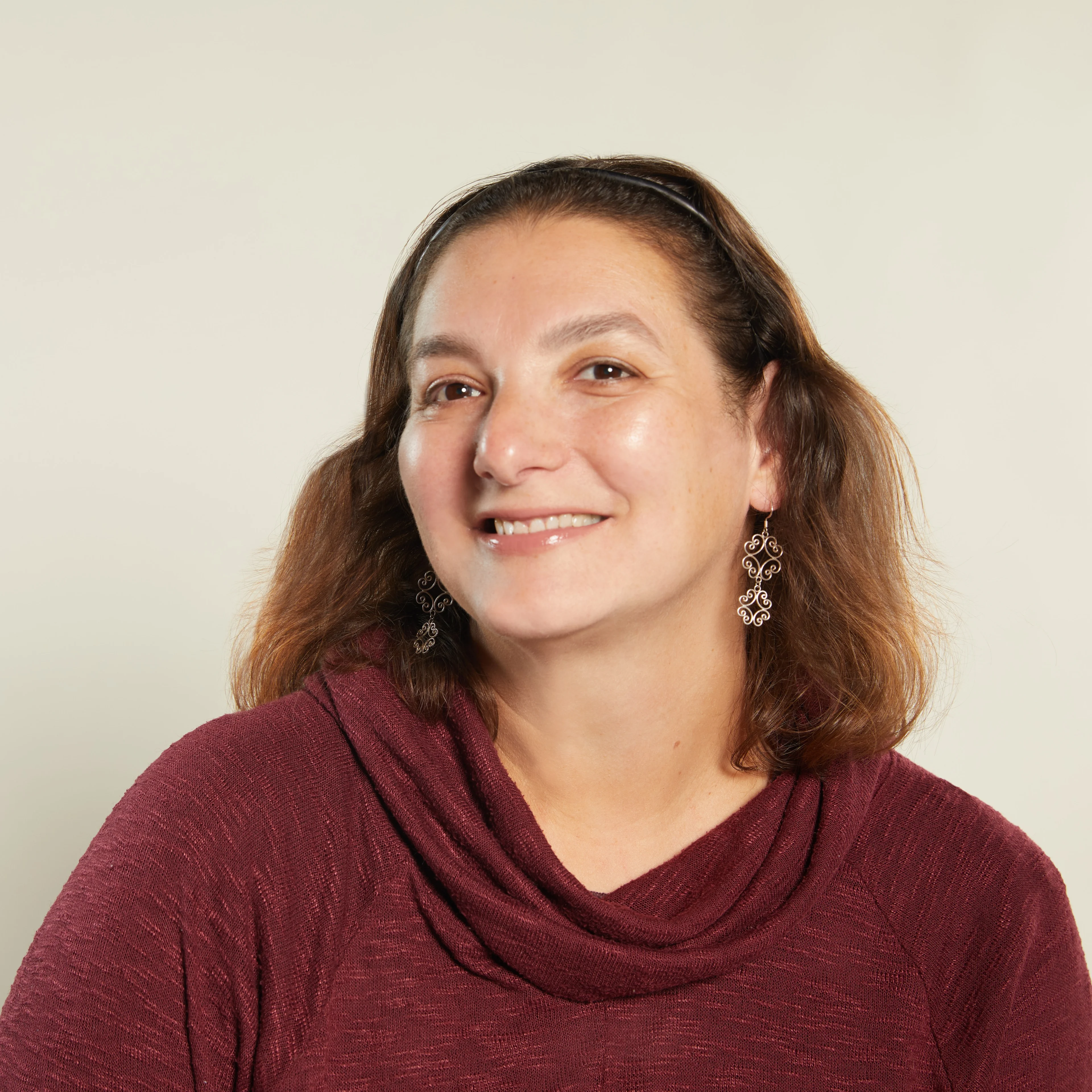
Rachel Bozek
is co-host of the “In It” podcast and the parent of two kids with ADHD. She has a background in writing and editing content for kids and parents.
Latest episodes
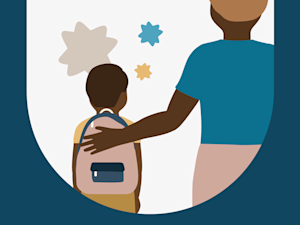
April 11, 2024
Learn ways to advocate for your child at school while maintaining a good relationship with their teachers.
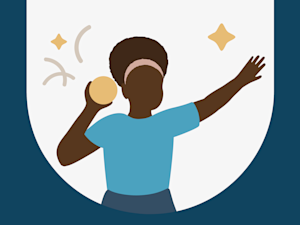
March 28, 2024
The track and field gold medalist shares her story and talks about ADHD, dyslexia, and building confidence.

March 14, 2024
The hosts interview kids’ book author Lindsey Rowe Parker. She talks about her new picture book about sensory differences in kids.

February 29, 2024
Understanding what a language disorder means for your child can be overwhelming. Here’s help from an expert.
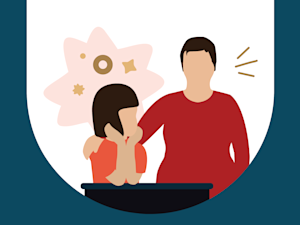
February 15, 2024
Talking with your child about their diagnosis of a learning and thinking difference can be tough. Get advice from an expert.
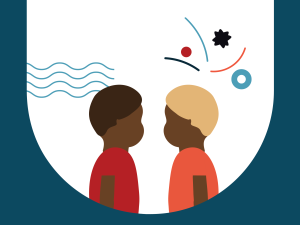
February 1, 2024
How can you manage the challenges of having one child who learns and thinks differently and one child who doesn’t? Get advice from an expert.
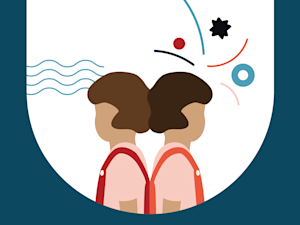
January 18, 2024
Any sibling relationship can be hard to manage. But what happens when one of the siblings has a learning or thinking difference? Here’s one mom’s story.

January 4, 2024
Overwhelmed by talking with your child’s pediatrician about ADHD or learning differences? These tips can help.
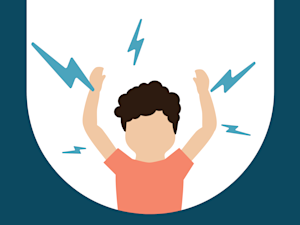
December 14, 2023
Tantrums and meltdowns are challenges all parents face. Get tips for projecting calm when kids and teens have tantrums.

November 30, 2023
A child’s learning or thinking difference can take any parent by surprise. One mom shares how her daughter’s diagnosis changed her parenting.
